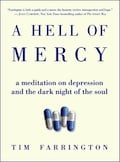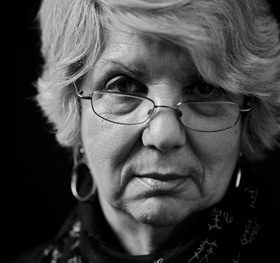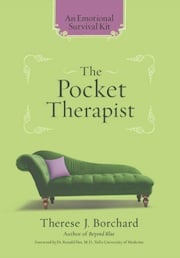
This week I have the honor of interviewing Tim Farrington, the acclaimed novelist of Lizzie’s War, “The California Book of the Dead,” “Blues for Hannah,” as well as the New York Times Notable Book of 2002, “The Monk Downstairs.”
Guess what? He’s one of us! And he articulates his journey through the hell of depression in a beautifully crafted memoir of sorts called “A Hell of Mercy: A Meditation on Depression and the Dark Night of the Soul.” Since that topic surfaces often on Beyond Blue, I thought I’d ask Tim to share his thoughts on both (depression and the dark night) with us.
Hi Tim, and welcome!
1. Let me skip to the end (sorry, I like to eat dessert first), when you write “It is in surrender, in the embrace of our own perceived futility, paradoxically, that real freedom comes.” I wholeheartedly agree with you there. I like to call those periods my “Exodus Moments”–when I am somehow able to cross the Red Sea from anxiety to freedom. But for those readers not familiar with your journey, can you them the Reader’s Digest version of your story?
Tim: I was raised Catholic, the oldest of four children. My father was a Marine Corps officer who served in Korea and Vietnam, and my mother was an actress and drama teacher, so I had plenty to reconcile right from the start. I had several years of Catholic school in the classic Catholic experience, including a good dose of the terror of hell and sin, and nuns with sticks, but I was also blessed in having an aunt who was a nun, and I spent a lot of happy hours at her convent and got to know the human and fun-loving side of religious vocation as well. I was an altar boy right around the time the mass switched from Latin to English after Vatican II, and thought about being a priest for a while when I was a kid. In my teens, though, I got into Buddhism, philosophy, and literature, and went through a long period of alienation from Christianity. But I was definitely looking hard for meaning.
In my twenties, I entered an ashram in Oakland, CA, where the prevailing philosophy was Hindu, Kashmir Shaivism. Strangely enough, it was during my two years there, while I was chanting to Kali and Krishna, meditating to an Om Namah Shivaya mantra, and chopping tons of vegetables in the ashram kitchen, that I discovered the profundity of the classic Christian mystics, beginning with The Cloud of Unknowing, and began to heal my alienation from that tradition. By the early ’90s I had come full circle, had discovered the bottomless wisdom of John of the Cross, and had embraced a centering prayer practice after meeting Fr. Thomas Keating.
Throughout all this, from late adolescence on, I was dealing with varying degrees of depression, often severe and occasionally debilitating. I was hospitalized once, for a week, but I was resistant to medication and even to therapy. I think I basically took it as the human condition; and I think too that there was more than a touch of superiority in it for me, like, if you’re not suffering, you’re not deep, the classic cliché of the tormented artist.
The crisis came when my mother died in 1997. It was a terrible death, stomach cancer, and the horror of it was more than I could handle. I just basically broke down, and was brutally depressed for two years afterward, mired in helpless blackness, and no amount of art or prayer helped in the least. The best I could do was to get quiet for about fifteen seconds a day at the bottom of my deepest prayer of surrender.
At some point, a painter friend of mine told me about her own good experience with antidepressants. I was finally ready to try that, and within a few weeks of going on Effexor the worst of the depression lifted and my brain started working again. It was a humbling experience of biochemical grace. And so my testimony at this point has a certain complexity: pray to God, but take your meds and see your therapist, basically.
2. Am I wrong in saying that you never really clarify the difference between depression and a dark night of the soul because so many times they are intertwined? You turn to Denis Turner’s theory that you can only tell the two apart by their fruits. But Carmelite Kevin Culligan helped me to distinguish the two–a spiritual dryness versus an illness needing treatment–when he lists some specific differences between depression and the dark night in his essay for the book “Carmelite Prayer: A Tradition for the 21st Century.” For example, he writes:
In the dark night of spirit, there is a painful awareness of one’s own incompleteness and imperfection in relation to God, however, one seldom utters morbid statements of abnormal guilt, self-loathing, worthlessness, and suicidal ideation that accompany serious depressive episodes. Thoughts of death do indeed occur in the dark night of spirit, such as “death alone will free me from the pain of what I now see in myself” or “I long to die and be finished with life in this world so that I can be with God,” but there is not the obsession with suicide or the intention to destroy oneself that is typical of depression.
As a rule, the dark nights of sense and spirit do not, in themselves, involve eating and sleeping disturbances, weight fluctuations, and other physical symptoms (such as headaches, digestive disorders, and chronic pain).
Do you not agree that there can be telltale signs of each even if the two happen together?
Tim: This is the heart of the matter, isn’t it? How much is it possible to sort out the wheat of a purgative spiritual experience like the dark night from the tares of a destructive psychological condition like depression? When should we buckle down to praying it through, and when should we seek treatment?
There are definitely broad guidelines and principles. John of the Cross offers a number of criteria for discerning the difference between what he called melancholia or bad humors and the dark night, as does the author of The Cloud of Unknowing; Fr. Culligan’s criteria also seem good. I do think it is possible to exercise an increasingly sophisticated discernment and sort out a lot of morbidity; the deeper you go, the more you learn to distinguish the baby of faith’s free surrender to the necessity of grace and the embrace of suffering as purgative, from the bathwater of just giving up in despair and spiraling down in a vicious circle of negativity and fruitless misery.
I also think that we should avoid any spiritual macho, and if anything err on the side of treating depression first; if God wants us to go through a dark night, we will go through it in God’s time, and we might as well be as sure as we can that we’re not just beating the crap out of ourselves and digging our own hole deeper, out of misguided spiritual ambition.
Having said all that, and in all humility, my own experience is that the wheat and the tares really do grow together in the complex circumstances of any particular life at any particular time, and that even at best we are going to experience periods of darkness in which it is genuinely impossible to say while it’s happening whether it is morbidity or purgation, illness or healing. There are points where I believe you just can’t tell. John of the Cross devotes an extraordinary amount of space to railing against spiritual directors who fail to recognize the dark night for what it is, and who impose counterproductive active measures against states that must actually be suffered passively.
The spiritual life really does have its dangers; a mature spirituality is a tightrope walk across a chasm and there are an infinite number of ways to lose our balance in either direction. We can fall to one side by over-diagnosing our spirituality as mental illness, and we can fall to the other side by over-spiritualizing our illness to avoid addressing it. And sometimes, with all the best knowledge and intention and discernment we can muster, we have to take the next step in the cloud of unknowing, in fear and doubt and consciousness of our weakness and fallibility, and just try to keep our balance in naked faith, relying on God for the outcome.
3. In Chapter Five, you write that “often depression is symptomatic of a Gordian knot of social dysfunctionality, and the communal compulsion to treat the ‘identified’ patient with drugs to ‘solve the problem’ (and thus avoid examining the pathological elements of the social matrix itself) is strong.” You then recount that at times in your life, when you were depressed, there was pressure to take antidepressants. I don’t disagree with you that sometimes psychiatrists move too quickly towards drugs.
But I also have to tell you that I experienced the opposite pressure. When I was severely depressed and suicidal for about 18 months, and had tried absolutely everything–therapy, gratitude journals, fish oil, support groups, cognitive behavioral methods–and still the majority of people in my life told me that I had everything within me to cure myself. It almost cost me my life. So I think you need to be extremely careful throwing out advice that sometimes you need to just go inside, don’t you?
Tim: I couldn’t agree more. I hope that in my book I make it clear that medication for depression is often not just the best option but a blessing and a godsend, and that my own resistance to medication almost certainly prolonged my own misery unnecessarily. My point in the passage you cite was not intended as a conclusive generality; in context I was just saying that life is complex, and that our social circumstances are part of the picture. At that time in my life, I was in an insane situation and my best move was to leave it. Knowing what I know now, I wish I had gone on antidepressants then—and left the insane situation.
4. In the last paragraph of your book you write: “I see my own depression, triggered by my mother’s death and exacerbated by neurotic conflicts, character disorders, a chaotic temperament, and even at times borderline psychosis, as a gift of God–a hell of mercy, as the old monk said, and not of wrath.”
That’s a beautiful description and part of me feels the same way you do. And yet I’m hesitant to contribute further to the idea of “heroic melancholy” because I think “Listening to Prozac” author Peter Kramer is right when he says that mental illness have been romanticized throughout the ages as having a spiritual value to you, and believes that as depression becomes thought of more as a disease (and high definition brain scans are helping us there) that the “aesthetic and moral overtones” will disappear, just like they did with tuberculosis. What do you think?
Tim: I love Peter Kramer’s work—“Listening to Prozac” and his more recent “Against Depression” are two of the most lucid, literate, deeply-informed books I’ve found on depression. He is absolutely right in critiquing the perverse glamorization of depression, the tendency to equate despair with depth and morbid hopeless suffering with profundity, and I think he is also right on in his insistence on seeing depression as a genuine degenerative disease with unequivocal somatic aspects and consequences that must be addressed promptly and energetically.
But having said that, I still find that I am grateful for what I have discovered through the experience of depression. To suffer profoundly is to be forced to find deeper enduring values, and that is as true of depression and mental illness in general as it is of cancer, diabetes, and heart disease.
We are not superior human beings because we’re depressed; indeed, I think one of the main things we lose through the experience of depression is the false props of our various senses of secret superiority. But in suffering and surviving depression, I do think we can come to a deepened sense of God’s mercy and goodness, to a renewed appreciation of the fundamental values of patience, humility, and compassion, and to a fire-tested faith from which a lot of the crap has been burned away. I am grateful for this gift of existence in a way I was not before I began to deal realistically with my illness.
* Click here to subscribe to Beyond Blue and click here to follow Therese on Twitter and click here to join Group Beyond Blue, a depression support group. Now stop clicking.

